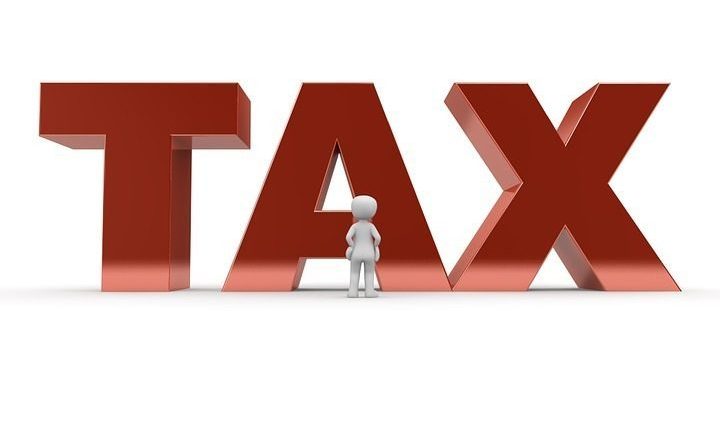This article is a continuation of the first set of expectations. To read about the first part, click here.
The 2018 Union Budget saw the reintroduction of the Long Term Capital Gains (LTCG) tax. It was previously scrapped in 2004 and was replaced by the Securities Transaction Tax (STT).
The government has not abolished the existing STT along with the reintroduction of LTCG tax. The equity investors are now liable to pay both LTCG tax and STT. The LTCG tax is payable above the threshold limit of Rs 1 lakh at 10% on gains in a financial year with no indexation benefit.
Equity mutual funds and stock market investors are feeling a pinch with the reintroduction of LTCG tax. LTCG tax is not the sole tax imposed on income/gains from equity investments. Apart from the LTCG tax, the equity investors are paying the following taxes:
- Securities transaction tax (STT): Securities Transaction Tax (STT) is a tax on the value of a securities transaction done through a recognised stock exchange in India. STT is levied on the transaction value of purchase and sale of listed securities. Securities are shares, debentures, bonds, equity-linked mutual funds, and derivatives segment. This tax was introduced in October 2004, replacing the then existing long term capital gains tax. The STT rate depends on the type of security and transaction (buy or sell) made on it. The following table shows the STT rates:
| Taxable securities transaction | Rate of STT | Individual responsible to pay STT | Value on which STT is required to be paid |
| Delivery based purchase of equity share | 0.1% | Purchaser | Price at which equity share is purchased* |
| Delivery based sale of an equity share | 0.1% | Seller | Price at which equity share is sold* |
| Delivery based sale of a unit of oriented mutual fund | 0.001% | Seller | Price at which unit is sold* |
| Sale of equity share or unit of equity oriented mutual fund in a recognised stock exchange otherwise than by actual delivery or transfer and intraday traded shares | 0.025% | Seller | Price at which equity share or unit is sold* |
| Derivative – Sale of option in securities | 0.017% | Seller | Option premium |
| Derivative – Sale of option in securities where the option is exercised | 0.125% | Purchaser | Settlement price |
| Derivative – Sale of futures in securities | 0.01% | Seller | Price at which such futures are traded |
| Sale of unit of an equity oriented fund to the Mutual Fund – Exchange traded funds (ETFs) | 0.001% | Seller | Price at which unit is sold* |
| Sale of unlisted shares under an offer for sale to the public included in IPO and where such shares are subsequently listed in stock exchanges | 0.2% | Seller | Price at which such shares are sold* |
| PURCHASE OF UNITS OF EQUITY ORIENTED MUTUAL FUNDS | NIL | PURCHASER | NA |
- Commodity transaction tax (CTT): Commodity transaction tax was introduced in the 2013-14 Union Budget. It was levied to differentiate derivatives traded in the commodities market and securities market. Investors trading non-farming commodities are liable to pay CTT. The scope of the tax at present includes a transaction of sale of commodity derivative and an option in commodity derivative in case of non-agro commodities.
- Dividend distribution tax (DDT): DDT is levied on companies on the dividend paid out to their investors/shareholders. The profit is tax-free in the hands of investors but is taxed at an effective rate of 20.56% at the corporate level. All domestic companies are subject to pay DDT.
- Dividend tax: Dividend tax is levied at 10% on taxpayers if dividend received from an Indian company exceeds Rs 10 lakh a year. Dividend received from a foreign company is taxable under the ‘income from other sources’ head, and it is taxed as per the taxpayer’s income slab.
- Health and education cess: Health and education cess are levied at 4% on the total tax payable by individuals. The cess is collected on the amount of tax and surcharge calculated in the hands of the taxpayer.
With taxpayers already paying so many taxes, the reintroduction of LTCG tax with the continuation of STT has added to their burden. Equity investors were expecting the rollback of LTCG tax or enhancement of the holding period on equities in the 2019 Interim Budget, but they were disappointed with the issue of LTCG and equity investments not touched upon. The 2019-20 full Union Budget is fast approaching, and equity investors are hopeful of the finance minister to provide some relief.
“One of the major exempt incomes was the LTCG on Equities. However, from 2018, the same is now no more exempt. The only relief for the investors was that capital gains earned by investors after 31 Jan 2018 would only be taxable as Fair Market Value (FMV) as on that date would be considered as cost if their purchase price is less than FMV. Currently, the short term capital gains (securities sold within one year) are taxed at 15%. With LTCG of 10%, an investor does not benefit much by holding on to his position in the market for long. This may discourage long term investments and promote a short term exit which is not a good sign” said Charted Accountant Shiva Kumar S K, Shiva Kumar S K & Co, in an interaction.
Apart from the rollback in LTCG tax, the equity investors are also expecting the government to look into the inconsistency in the taxation of various asset classes. Equity investments are considered long term at a holding period of one year while real estate investments are considered long term at two years.
The debt investments are considered long term only at three years. The equity investors are hard done by the classification and the reintroduction of LTCG tax. The equity investors are hopeful of the government coming up with favourable changes in the upcoming full budget, which is set to be presented on 5 July 2019.
Engineer by qualification, financial writer by choice. I am always open to learning new things.





